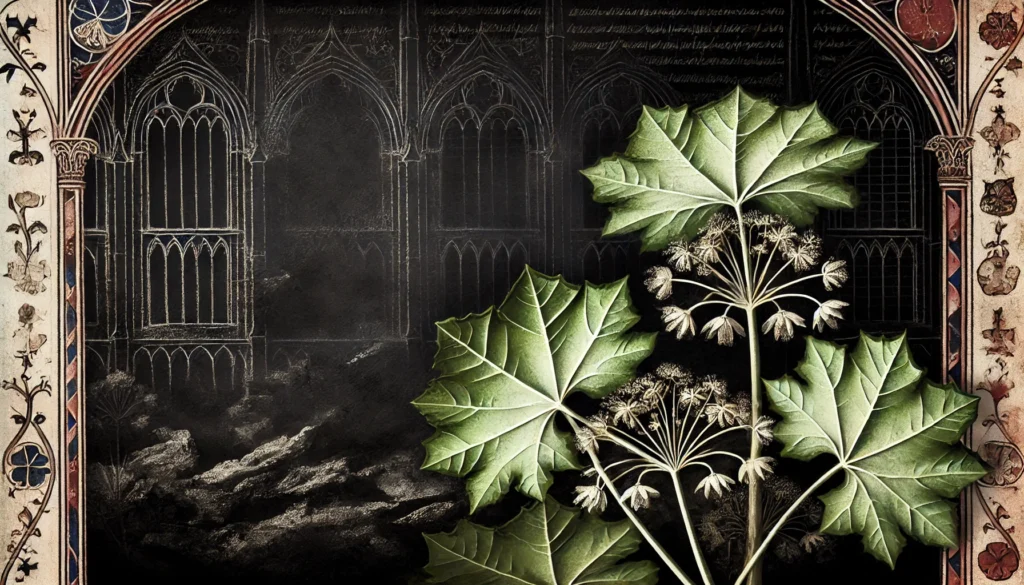

Home » Cat Plants » The Harm the Umbrella Leaf Plant Can Cause to Cats

The Umbrella Leaf (Podophyllum peltatum), also known as the May Apple, is a flowering plant native to eastern North America. This plant is highly toxic to cats and can cause severe poisoning if ingested.
Umbrella Leaf contains podophyllotoxin, a toxic compound that disrupts cell division and can lead to serious health issues in felines. The plant is commonly found in moist woodlands, thickets, and shaded areas throughout its native range.
Ingestion may cause mild gastrointestinal upset, but is generally not life-threatening.
Ingestion can result in mild symptoms like vomiting, diarrhea, or drooling. Rarely fatal but may require veterinary care.
Eating these plants can lead to more pronounced symptoms like abdominal pain, lethargy, or difficulty breathing. Veterinary intervention may be necessary.
Ingesting even small amounts can cause severe symptoms like organ damage, seizures, or cardiac failure without rapid treatment.
All parts of these plants are extremely poisonous to cats and can quickly lead to death, even with immediate veterinary care.
** Please note: Please note that toxicity level can vary based on the amount ingested and the specific cat. It's always best to keep these plants completely inaccessible to cats and seek immediate veterinary care or call the poison hotline if you suspect your cat has ingested any part of a toxic plant.
If a cat ingests any part of the Umbrella Leaf plant, they may experience a range of symptoms indicating poisoning. Common signs of Umbrella Leaf toxicity in cats include:
In severe cases, Umbrella Leaf poisoning can lead to liver failure, respiratory distress, and even death if not promptly treated by a veterinarian.
If you suspect your cat has ingested Umbrella Leaf, it is crucial to seek veterinary care immediately. Your veterinarian will likely follow these steps to diagnose and treat Umbrella Leaf poisoning:

A: Yes, Umbrella Leaf plants are toxic to cats. Ingesting any part of this plant can lead to symptoms like vomiting, drooling, and difficulty swallowing due to the presence of calcium oxalate crystals.
A: If a cat eats Umbrella Leaf, it may experience symptoms like intense oral irritation, vomiting, and drooling. Immediate veterinary care is necessary to manage these symptoms and prevent further complications.
A: Yes, all parts of the Umbrella Leaf plant, including the leaves and stems, are toxic to cats. These parts contain toxic compounds that can cause significant discomfort and health issues if ingested.
A: Even small amounts of Umbrella Leaf can be harmful to cats. Ingesting any part of the plant can result in toxic reactions, so it’s important to keep it out of reach of pets.
A: Umbrella Leaf poisoning in cats can be serious, but it is rarely fatal if treated promptly. Quick veterinary intervention is crucial to alleviate symptoms and prevent complications.
A: If your cat ingests Umbrella Leaf, contact your veterinarian immediately. Early treatment can help reduce the toxic effects and protect your cat’s health.
The Umbrella Leaf, or Podophyllum peltatum, is a perennial herb belonging to the Berberidaceae family. Native Americans have used this plant for centuries in traditional medicine to treat various ailments, including warts, skin cancers, and digestive issues. However, the plant’s toxic properties make it dangerous for use without proper knowledge and guidance.
In the 19th century, podophyllotoxin, the active compound in Umbrella Leaf, was isolated and studied for its medicinal properties. This discovery led to the development of chemotherapy drugs like etoposide and teniposide, which are used to treat certain types of cancer.
Despite its medicinal uses, the Umbrella Leaf remains a significant threat to cats and other animals due to its high toxicity. It is essential for pet owners to be aware of the risks and keep their cats away from this plant.
Please note: The information shared in this post is for informational purposes only and should not be considered as veterinary medical advice.
🐾 A hilarious or heart-melting cat video
🐾 Our latest paws-on review of a cool cat toy